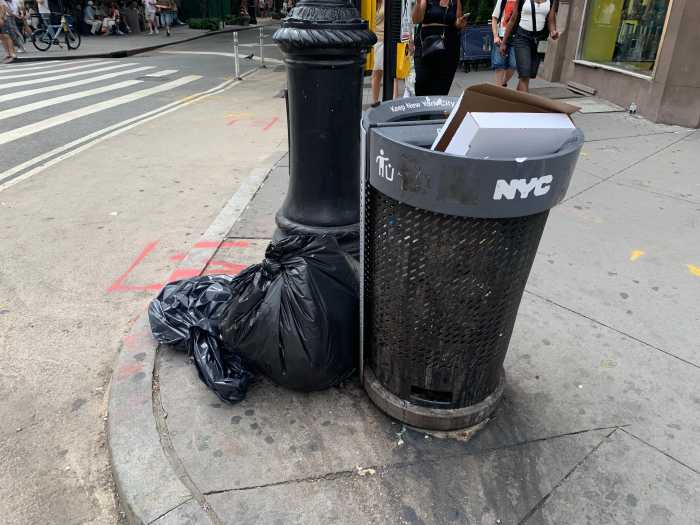Minimum Wage = Minimum Opportunity
In President Obama’s “State of the Union Address” he mentioned jobs 47 times. Recently, we’ve heard Governor Cuomo harping about jobs for the Empire State. But if it’s all about jobs, why endorse the raising of the minimum wage, which has resulted in more than a half century of ignominious discreditation. This measure is often greeted with the sound of trumpets; I would much prefer to write a dirge, for the minimum wage is a job destroyer not a job creator.
The minimum wage is a classic example of the indissoluble bond between pet prejudices and public policy; a bias that has become intolerably wearisome. Mandarins duped by the sophistry that because a rose smells better than a cabbage it would also make a better soup. Such moral asseverations are the sanctum sanctorum of the political and cultural dilettantti; a creedal hosanna to give obeisance to that which they know next to nothing about. The minimum wage law is one of those secular, holy doctrines where emotions overrule facts and sound bites supplant understanding.
I am, among others, a discoverer of the most depressing irony of the age: the predilection of the poor and jobless to unquestioningly support elected officials advocating policies that diminish their chances for success and economic independence. It has a rather cruel Rousseauean slant: “Even the poor may be born free but are in chains everywhere.” After WWII, black teenage unemployment was 9 percent. When the Federal Government, in 1961, began propping that wage ever upward, the unemployment rate for black teenagers soon began to hover, and has mostly remained, at or near 40 percent.
It’s pitiful. The government first fails to provide adequate public education for minorities, the very vehicle of upward mobility, then by derailing education vouchers the Washington bureaucracy denies that community from sending their children to attend parochial and private schools that their own children are attending. Finally, these do-gooders administer the coup de grace by making it prohibitive for many businesses to hire low-skilled workers. One is reminded of Henry Ford who once quipped, “Any man who thinks he can be happy and prosperous by letting the government take care of him, better take a closer look at the American Indian.”
A simple and direct question: Who has been the most reliable proponent for the minimum wage, who has testified in favor of it more frequently than any other group? It is certainly not the poor and the jobless. It’s the Federation of American Labor, the AFL-CIO, whose members’ wages far exceed the minimum wage but are nonetheless covetous of this legislation. Their reason is not born out of compassion, or a sense of justice. They realize that a higher minimum wage eliminates competition and inflates their own compensation.
No doubt workers who are employed will also benefit from the proposed raising of the minimum wage from $7.25 -$9, providing they remain employed at the new rate. But the nearly 40 percent of black teenagers and others looking for work will suffer; their pay will add up to one big, fat zero. The president could say what he wants, and he usually does, but the overwhelming number of academic studies show that setting an artificial floor (meaning not dictated by the market) will have a negative impact on the employment of low skilled workers, depriving them not only of a job but the discipline and experience that comes from the habit of working. If raising the minimum wage is so beneficial why stop at $9 —- why not $10 or $15. The logic, once put in practice, ultimately undermines itself.
The truth is that most families in poverty don’t have anyone working and most minimum wage workers are not the primary earners. Nearly 40 percent live with their families or with one of their relatives. In fact, the average family income of a household with a minimum wage earner is $47,023, about twice the defined income of what constitutes poverty. Moreover, when jobless rates are high the minimum wage is naturally lower; a simple function of supply and demand. So we have high minimum wages causing unemployment among low skilled workers, which in turn suppresses the minimum wage. A vicious csycle indeed.
History is the most prescient of seers. Look what happened in July, 2007, when the minimum wage was incrementally hiked to $7.25 from $5.15, the last increase coming two and a half years ago. Not surprisingly, the jobless rate spiked, especially for black teenagers who are most in need of these jobs. The chief economist of the National Federation of Independent Business Owners concluded that after the last increase in July of 2009, 600,000 jobs vanished over the next six months. None of the newly unemployed were from the AFL-CIO. Even if they subtly rationalize it as helping the working poor, you can’t tell me that the Administration’s economists are ignorant about the data and you can’t tell me it’s not political.
Raising the minimum wage is a way of rewarding the unions who pay back their benefactors very profitably each election day. Like rent control apartments (the kind the late Ed Koch lived in when he was N.Y.C. mayor) the minimum wage also curries favor with the poor on the false pretense that the law is helping them make ends meet. The subtleties of rent control, as well as the minimum wage, are obscure and unobvious to the masses, which is why Republicans will almost certainly feel compelled, as they have in the past, to march in step to avoid being labeled as out of touch, heartless and even racist.
A small employer takes a risk when he hires a low-skilled worker; we should be making it easier, not harder, for them to hire more of these workers and get them in the habit of working rather than leaving them on the mean streets of our inner cities. As the old adage says, the best social program is a job. The minimum wage winks and flirts with its suitors; but like most coquettes, its charms are always a tease, never a commitment. As things presently are, the promise of jobs for low-skilled works has just become that much harder.


































